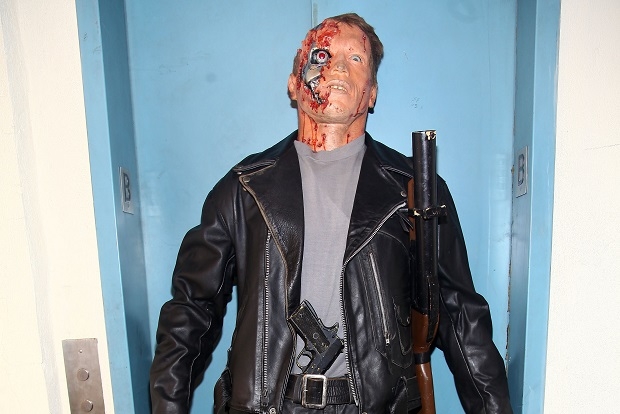Ever since the onset of artificial intelligence – simulating human reasoning, problem solving – there has been worry about the machines taking over. Taking our jobs, rendering us unnecessary, perhaps even developing sentience and turning on us, like Skynet in Terminator 2.
Some of those fears have been wildly exaggerated, partly based on a misconception of what artificial intelligence actually is (which, on the whole, still remains using examples to train computer programmes to mimic human behaviour under certain quite limited conditions). But they aren’t completely foolish worries. The speed of improvement in artificial intelligence, as in much modern technology, is dazzling and quickening. According to Google’s Ray Kurzweil, in 2045 we will reach what’s known as ‘Singularity’: the point at which artificial intelligence becomes so advanced that it begins to produce new and ever more advanced versions of itself, leaving us mortals behind. If that happens then yes, consider your job at risk. Along with everything else. (Perhaps we fleshy souls will be usefully employed guarding plug sockets, although the super computers will have figured out a way of resolving that problem too, the clever rascals.)
Leaving aside for the moment that artificial intelligence obviously creates jobs too – technology often tends to improve total productivity, and create more high skilled opportunity at the expense of semi-skilled work – what is usually overlooked is how society might respond to all of this. The effect of AI on jobs depends on more than computing speed.
As technology comes to play an increasingly important and signal role in society, expect something of a backlash. Already there are groups and movements hoping to slow down its rapid development. In 2011 a New Mexico group called the Individualists Tending Toward the Wild were founded with the objective ‘to injure or kill scientists and researchers (by the means of whatever violent act) who ensure the Technoindustrial System continues its course’. That year they detonated a bomb at a prominent nano-technology research centre in Monterrey. I expect to see more of these groups in the coming years, especially if Singularity begins to look possible).
Then there’s the government. Even if AI could theoretically do your job better than you – of course it depends on what the job is – the prospect of genuinely powerful artificial intelligence is likely to provoke swift and heavy regulation to try to limit its effect on the workforce. A new political party would be founded campaigning on a ‘jobs at risk from AI’ platform, which would force the government of tomorrow to pass strict legislation to limit the damage. Perhaps some kind of points based system.
Where this all might lead is anyone’s guess. Zoltan Istvan, an American futurist and writer has recently released a controversial novel called The Transhumanist Wager. In it, a small band of transhumanists – including scientists who work on artificial intelligence – disappear to a floating seasted in international waters called Transhumania. They believe society’s fear of technology is getting in the way of innovation and development. From Transhumania, this band of brilliant scientists launch a world war against the forces of inertia. ‘It’s a novel’, Zoltan assures me, unconvincingly.
Jamie Bartlett is Director, Centre for the Analysis of Social Media
 The Spectator is holding a debate ‘Will Artificial Intelligence Put My Job at Risk?‘ at 7pm on Wednesday 18 June at Prince Philip House, SW1. Speakers will include: Andrew Blake, Laboratory Director, Microsoft; Jamie Bartlett, Director of the Centre for the Analysis of Social Media, Demos; Nicola Smith, Head of Economic and Social Affairs, Trade Unions Congress; and the author and journalist Bryan Appleyard.
The Spectator is holding a debate ‘Will Artificial Intelligence Put My Job at Risk?‘ at 7pm on Wednesday 18 June at Prince Philip House, SW1. Speakers will include: Andrew Blake, Laboratory Director, Microsoft; Jamie Bartlett, Director of the Centre for the Analysis of Social Media, Demos; Nicola Smith, Head of Economic and Social Affairs, Trade Unions Congress; and the author and journalist Bryan Appleyard.
You can join the discussion by clicking here.






Comments